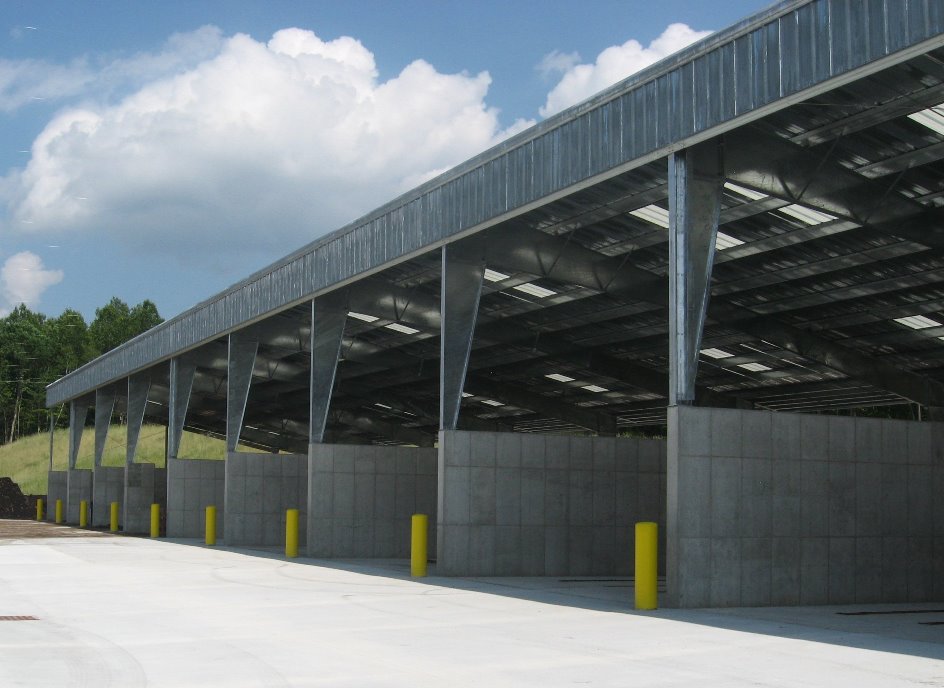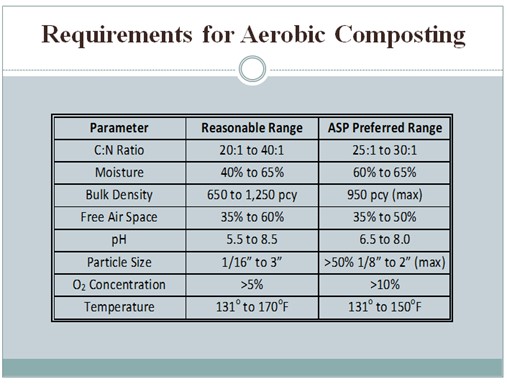 In 2010, I met Mr. Tom Moreau at the US Composting Council Conference in Austin, Texas. At that time, Tom* was the Director of Chittenden County’s Green Mountain Compost facility in Vermont and after attending my all-day workshop on Aerated Static Pile Composting, he asked me to help them design the aeration system for their new compost building. Over the next several weeks, we worked together to determine the size and number of compost bays and O2Compost provided the aeration system design according to their specifications.
In 2010, I met Mr. Tom Moreau at the US Composting Council Conference in Austin, Texas. At that time, Tom* was the Director of Chittenden County’s Green Mountain Compost facility in Vermont and after attending my all-day workshop on Aerated Static Pile Composting, he asked me to help them design the aeration system for their new compost building. Over the next several weeks, we worked together to determine the size and number of compost bays and O2Compost provided the aeration system design according to their specifications.
About a year and a half later, I received a call from Tom and without preamble, he said, “Peter, your aeration system DOES NOT WORK! Needless to say, I was a bit taken aback.
I replied, “OK, Tom, let’s talk about your current operation." The following is a rough transcription of our conversation.
Peter: “What feedstocks are you composting?”
Tom: “Mostly food waste, lots and lots of food waste. We mix it with some leaves and wood chips.”
Peter: “What is the bulk density of your mix?”
Tom: “I have no idea but I do know it’s quite heavy.”
Peter: “What is the moisture content of your initial mix?”
Tom: “I have no idea but I do know it’s nice and wet. Water seeps out from the toe of the pile when we stack it in the compost bays.”
I sent Tom the field test protocol for determining the moisture content, bulk density, and free-air space of his mix (what we call the “Bucket-Test”). As I expected, the results showed that the mix was way too dense (over 1,250 pounds per cubic yard) and way too wet (over 80% moisture). I recommended reducing the amount of food waste by half and increasing the amount of wood chips in the initial mix two-fold as a way to increase the porosity of the mix and reduce the moisture content to the desired 60 - 65%. Tom agreed to do this with his next batch.
Two weeks later, Tom called me again and without preamble, he said “Peter, YOU‘RE A GENIUS. We’re getting great heat from our piles and we’ve resolved all of our odor issues.”
The truth is I’m not a genius, I just understood that the initial mix needed to fall within a desired set of parameters, as shown below:

If the composting process is not proceeding as you would expect, my recommendation is to first consider the initial mix of materials. More often than not, it is either a bulk density issue or a moisture issue, or a combination of these two parameters.
*Tom Moreau is now retired but he and I have laughed over our earlier conversation. I retell this story here with his permission.